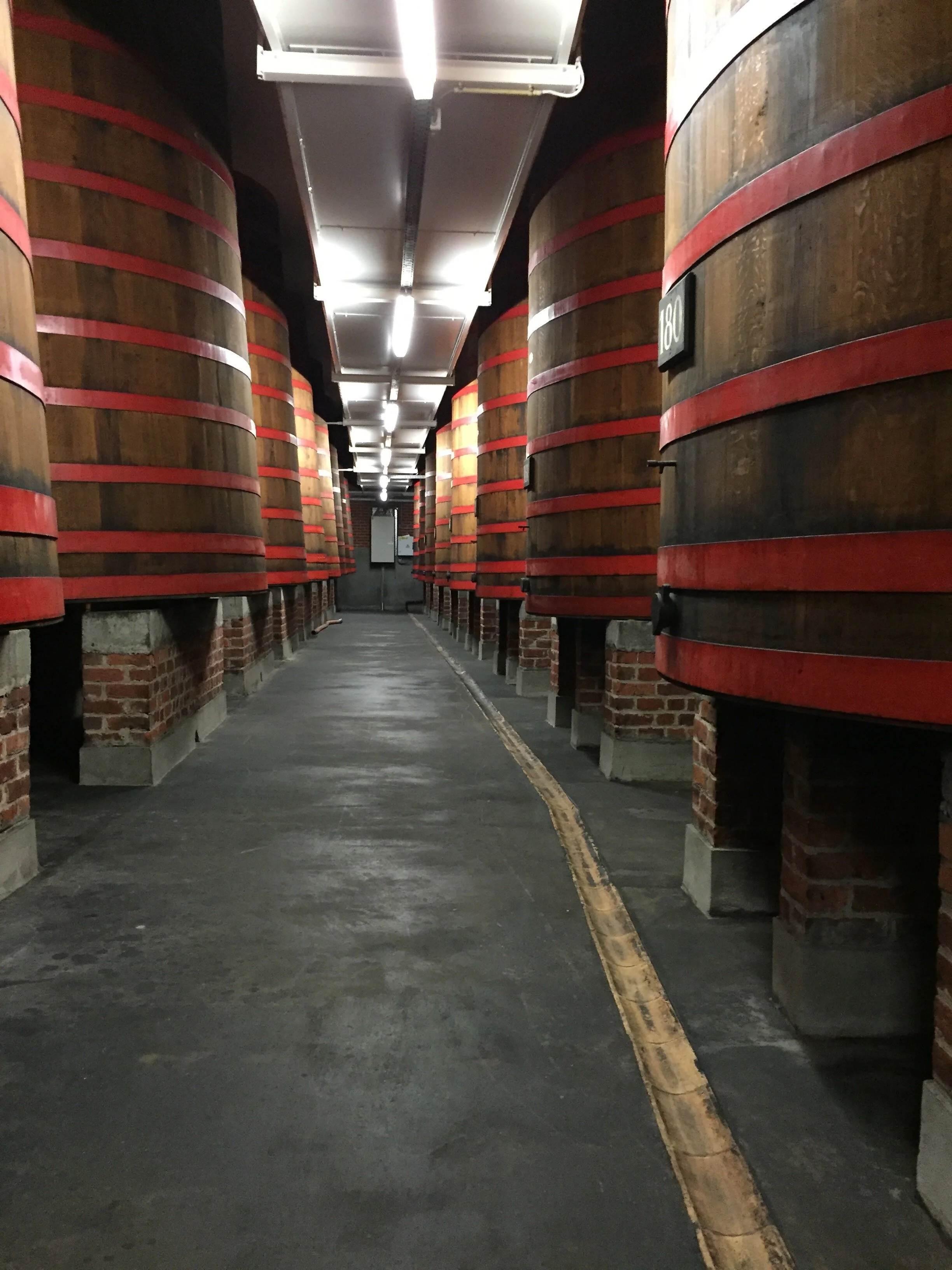What can beer tell us about Britain’s relationship with Europe? Quite a bit, as it turns out …
A few years ago I went to the western-most part of West Flanders, or the Westhoek as it’s known in Belgium. It was a trip organised by Paul Walsh, publisher of the late, lamented Belgian Beer & Food magazine; we visited breweries and bars, and stared wistfully at cemeteries and battlefields preserved for the benefit of the many tourists who visit each year. It was 90 percent fun, ten percent solemnity, about the same ratio as Paul himself.
What is really striking about the Westhoek are its strong links with Britain. Take beer, for example. Belgium’s most significant hop-growing region is centred around the Westhoek town of Poperinge, and most of the hops grown there are English varieties: Golding, Pilgrim, Fuggle, Phoenix, Challenger, and so on. It’s like Kent, except rather flatter, but with the same North Sea drizzle.
Rodenbach, one of the region’s most famous breweries, ages beer in a way that, it seems likely, was borrowed from England’s 18th/19th-century Porter brewers. A brewery in Ieper (Ypres), Kazematten, co-founded by Rodenbach head brewer Rudi Ghequire’s son Maarten, makes ‘Wipers Times’, named for the newspaper produced by British soldiers in the town during the First World War.
The visitors who continue to stream towards Ieper from Britain maintain the link. We spent an afternoon with Jacques Ryckebosch, a local man who has been leading battlefield tours for decades. The depth of his affection for Britain - from his country-gent clothes to his passion for pubs and his memories of long-gone Tommies (‘I miss them so much’) - was clear.
In one sense, it’s banal to point out that Britain and West Flanders have a strong connection. In another, it’s timely; Brexit is happening, and we will be a bit more distant when it has finally run its course. Or we may only seem to be. Whatever the chancers in Downing Street achieve in terms of pissing everyone off, this country’s links to Europe will remain strong. They invariably have been, even before wool exports to Flanders made Medieval England rich and the first barrel of claret reached London in the 12th century.
What is the point of this? It’s a convoluted way of promoting a talk I’m doing this Saturday, as part of Context Conversations. I’m going to be focusing on the four countries generally regarded as the home of modern beer: Britain, Belgium, Germany and Czechia. But another way to see it is that beer as we know it is a creation of northern Europe in its entirety.
Low Countries traders brought hops to England. The first Pilsner was produced in Bohemia by a Bavarian brewer using English malting techniques. Alsace, France’s most easterly region, is 100 percent German in terms of beer (except for the odd drop of maize). Danes identified the flavour that made British ales taste British, although we associate that flavour with Belgium now. An early 20th-century Belgian beer style - Speciale Belge - was developed as a riposte to English pale ale and German Pils, incorporating the best of both. London invented Stout but Ireland owns it now. The most forward-looking modern European brewers, wherever they might be, are inspired by Belgium’s Lambic tradition.
Of course there are local differences, although perhaps not as much as we might assume. The best traditional bars anywhere in this part of the world hew close to a singular vision: dark wood, bits of old junk/trinkets as decoration, a pervasive sense of happiness and well-being. British and Irish pubs, Belgian and Dutch Brown Cafes, Franconian and Czech inns; the best of them fit the bill.
So, anyway - if you’re at a loose end on Saturday, please join me at 6pm (1pm EST) for 75 minutes of my voice, slides of Dusseldorf breweries and Czech hop gardens, occasional gags and a few glasses of beer. I promise not to mention Brexit more often than I can avoid.

